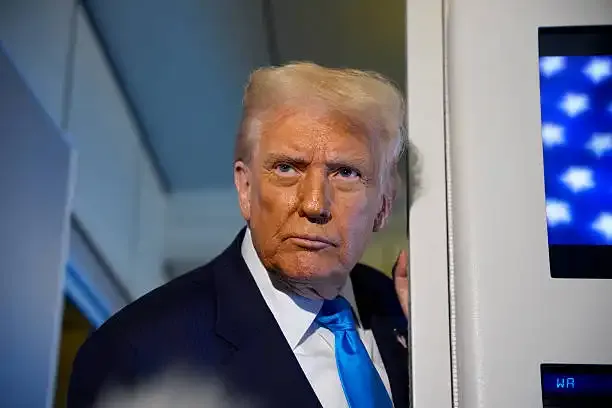Shopping cart
Your cart empty!
Terms of use dolor sit amet consectetur, adipisicing elit. Recusandae provident ullam aperiam quo ad non corrupti sit vel quam repellat ipsa quod sed, repellendus adipisci, ducimus ea modi odio assumenda.
Lorem ipsum dolor sit amet consectetur adipisicing elit. Sequi, cum esse possimus officiis amet ea voluptatibus libero! Dolorum assumenda esse, deserunt ipsum ad iusto! Praesentium error nobis tenetur at, quis nostrum facere excepturi architecto totam.
Lorem ipsum dolor sit amet consectetur adipisicing elit. Inventore, soluta alias eaque modi ipsum sint iusto fugiat vero velit rerum.
Sequi, cum esse possimus officiis amet ea voluptatibus libero! Dolorum assumenda esse, deserunt ipsum ad iusto! Praesentium error nobis tenetur at, quis nostrum facere excepturi architecto totam.
Lorem ipsum dolor sit amet consectetur adipisicing elit. Inventore, soluta alias eaque modi ipsum sint iusto fugiat vero velit rerum.
Dolor sit amet consectetur adipisicing elit. Sequi, cum esse possimus officiis amet ea voluptatibus libero! Dolorum assumenda esse, deserunt ipsum ad iusto! Praesentium error nobis tenetur at, quis nostrum facere excepturi architecto totam.
Lorem ipsum dolor sit amet consectetur adipisicing elit. Inventore, soluta alias eaque modi ipsum sint iusto fugiat vero velit rerum.
Sit amet consectetur adipisicing elit. Sequi, cum esse possimus officiis amet ea voluptatibus libero! Dolorum assumenda esse, deserunt ipsum ad iusto! Praesentium error nobis tenetur at, quis nostrum facere excepturi architecto totam.
Lorem ipsum dolor sit amet consectetur adipisicing elit. Inventore, soluta alias eaque modi ipsum sint iusto fugiat vero velit rerum.
Do you agree to our terms? Sign up

In a stunning statement that could reshape global security dynamics, former U.S. President Donald Trump has hinted at the possibility of the United States resuming underground nuclear weapons testing, a practice halted in 1992.
Speaking at a rally earlier this week, Trump declared,
“If other countries do it, we will do it too,”
suggesting that Washington could reconsider its decades-long moratorium on nuclear testing if rival powers like Russia or China continue developing advanced weapon systems.
The remarks have sparked international anxiety, raising fears of a renewed nuclear arms race and a potential collapse of the long-standing de facto global test ban.
If implemented, Trump’s statement would represent the most significant shift in U.S. nuclear policy since the early 1990s.
The U.S. last conducted an underground nuclear test at the Nevada Test Site in September 1992, after which it adhered to a self-imposed moratorium and supported the Comprehensive Nuclear-Test-Ban Treaty (CTBT) — though it never formally ratified it.
Experts say Trump’s declaration signals a potential reversal of bipartisan restraint, one that could trigger similar moves by other nuclear powers.
“Such rhetoric could dangerously undermine decades of arms control progress,” warned a former U.S. diplomat involved in nuclear negotiations during the Clinton administration.
The comments come amid mounting nuclear competition among major powers.
Russia recently claimed successful tests of its Poseidon underwater nuclear drone, capable of causing radioactive tsunamis.
China continues to expand its nuclear arsenal and testing facilities, according to U.S. intelligence reports.
North Korea remains defiant, carrying out a record number of missile launches in 2024.
In this volatile environment, Trump’s statement is seen by many as a signal of American assertiveness — or recklessness — depending on perspective.
Analysts warn that resuming U.S. nuclear testing could:
Trigger reciprocal tests by Russia, China, and possibly India or Pakistan.
Undermine the Comprehensive Nuclear-Test-Ban Treaty (CTBT) framework.
Spark a global race to develop next-generation nuclear weapons.
Strain U.S. relations with NATO allies and non-proliferation advocates.
“Even a single test could erode international norms built over 30 years,” noted Dr. Laura Thompson, a non-proliferation expert at the Brookings Institution.
Trump’s comments also come as he campaigns for a potential 2026 presidential run, using national security and military strength as key talking points.
Supporters argue that his approach signals deterrence and strength, while critics accuse him of reckless brinkmanship that could destabilize decades of peacekeeping efforts.
A recent poll by The Hill found that 48% of American voters are opposed to any resumption of nuclear testing, while 36% support the idea under “strategic necessity.”
Countries including France, Japan, and Germany have expressed concern, urging Washington to uphold its commitment to the nuclear testing moratorium.
The United Nations Office for Disarmament Affairs (UNODA) issued a statement emphasizing that “any resumption of nuclear testing risks reversing decades of progress and would have far-reaching humanitarian and environmental consequences.”
Meanwhile, Moscow and Beijing have yet to issue official reactions but are expected to use Trump’s remarks to justify their own military advancements.
If the U.S. indeed resumes nuclear testing after 32 years, it could open a new chapter in the global arms race, one defined by heightened distrust and diminished diplomatic control.
Whether Trump’s comments mark a policy declaration or a campaign provocation, they have already reignited global debate on the future of nuclear restraint and deterrence.
7
Published: 13h ago